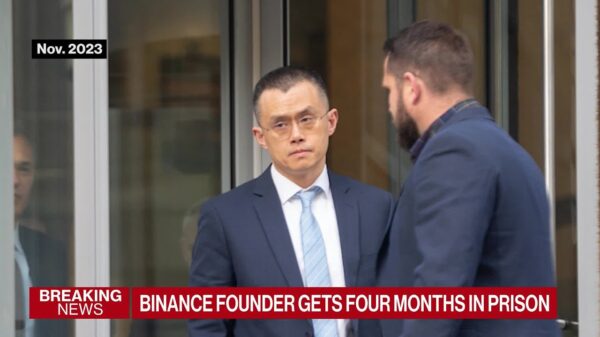Adding to the array of options for Bitcoin users to send, receive, and raise funds, Lightning addresses are versatile. They can be either custodial or connected to users’ individual nodes. One of the prominent real-world applications for Lightning Addresses is crowdfunding.
In a conversation with MetaMick, the CEO of Geyser Fund, and Stelios Rammos, the CTO, insights were gathered on how to utilize Lightning Addresses and why crowdfunding stands out as a favorable application for this innovative technology. Geyser Fund is a crowdfunding platform akin to GoFundMe but operates on Bitcoin and Lightning.
Lightning Addresses are akin to email addresses, facilitating users to transfer value through lightning in a user-friendly manner. These addresses are easy to remember and can be reused unlike bolt11 lightning addresses, as MetaMick explained. After experimenting with the service, Cointelegraph succeeded in raising funds swiftly:
Creators can now receive their project contributions into their lightning addresses. ⚡️
Launching a crowdfunding project has never been easier!
“That’s it? This is too quick, Mick!” @JoeNakamoto pic.twitter.com/hUFZapyUqj
— Geyser (@geyserfund) December 16, 2022
Initially conceptualized by Andre Neves and Fiatjaf (the mind behind Nostr), Lightning wallet addresses can be generated on custodial platforms such as Wallet of Satoshi, CoinCorner, or BitRefill, and swiftly synchronized with Geyser Fund:
“You just link up your wallet to Geyser, and all donations go through directly in your wallet.”
Crowdfunding has historically piqued interest within the Bitcoin and cryptocurrency sector. Thanks to Bitcoin’s robust properties of censorship resistance and self-sovereignty, it emerges as an efficient means for online money transfers.
The wide adoption of Bitcoin for fundraising dates back to the 2011 Wikileaks campaign led by Julian Assange, where Bitcoin was utilized to raise substantial funds amidst the disruption of banking services. More recently, during events like the Canadian Trucker Protests and protests in Nigeria, Bitcoin was employed due to the shutdown of USD-based crowdfunding avenues.
Lightning Addresses elevate funding processes by accelerating transactions and simplifying the user experience. Lightning Network transactions occur almost instantly, a stark contrast to the typical 10-minute duration for regular Bitcoin transactions. Lightning is particularly suitable for rapid microtransactions like those in physical stores or for sending modest contributions to creators globally.
With Lightning Addresses, Bitcoin users can expedite fundraising activities with a streamlined process. Geyser abstains from acting as a custodian by forwarding all the funds directly to creators’ Lightning Addresses through “hodl invoices,” ensuring a trustless and non-custodial operation in alignment with the core tenets of Bitcoin.
Though challenges persist with the Lightning Network, like the necessity for more user-friendly wallets and improved integration with current payment systems, it is evident that the Lightning Network holds immense potential to transform online payment and fundraising paradigms.
As more users embrace the Lightning Network and leverage the advantages of these fresh addresses, a notable shift towards more efficient, cost-effective, and censorship-resistant online payments may unfold.
Image Source: Andreas Bendig / Shutterstock













































